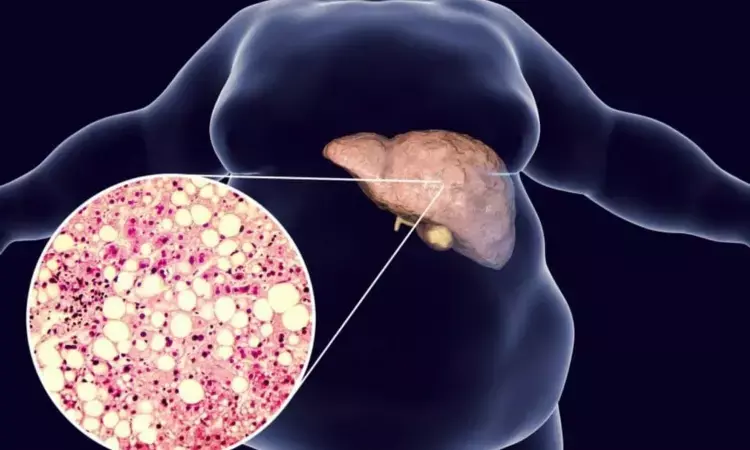- Home
- Medical news & Guidelines
- Anesthesiology
- Cardiology and CTVS
- Critical Care
- Dentistry
- Dermatology
- Diabetes and Endocrinology
- ENT
- Gastroenterology
- Medicine
- Nephrology
- Neurology
- Obstretics-Gynaecology
- Oncology
- Ophthalmology
- Orthopaedics
- Pediatrics-Neonatology
- Psychiatry
- Pulmonology
- Radiology
- Surgery
- Urology
- Laboratory Medicine
- Diet
- Nursing
- Paramedical
- Physiotherapy
- Health news
- Fact Check
- Bone Health Fact Check
- Brain Health Fact Check
- Cancer Related Fact Check
- Child Care Fact Check
- Dental and oral health fact check
- Diabetes and metabolic health fact check
- Diet and Nutrition Fact Check
- Eye and ENT Care Fact Check
- Fitness fact check
- Gut health fact check
- Heart health fact check
- Kidney health fact check
- Medical education fact check
- Men's health fact check
- Respiratory fact check
- Skin and hair care fact check
- Vaccine and Immunization fact check
- Women's health fact check
- AYUSH
- State News
- Andaman and Nicobar Islands
- Andhra Pradesh
- Arunachal Pradesh
- Assam
- Bihar
- Chandigarh
- Chattisgarh
- Dadra and Nagar Haveli
- Daman and Diu
- Delhi
- Goa
- Gujarat
- Haryana
- Himachal Pradesh
- Jammu & Kashmir
- Jharkhand
- Karnataka
- Kerala
- Ladakh
- Lakshadweep
- Madhya Pradesh
- Maharashtra
- Manipur
- Meghalaya
- Mizoram
- Nagaland
- Odisha
- Puducherry
- Punjab
- Rajasthan
- Sikkim
- Tamil Nadu
- Telangana
- Tripura
- Uttar Pradesh
- Uttrakhand
- West Bengal
- Medical Education
- Industry
Updated MASLD Guidelines Emphasize New Strategies for Managing Liver Disease Linked to Metabolic Disorders

The European Association for the Study of the Liver (EASL), the European Association for the Study of Diabetes (EASD), and the European Association for the Study of Obesity (EASO) have jointly released updated clinical practice guidelines for the management of metabolic dysfunction-associated steatotic liver disease (MASLD). Published in Diabetologia, these guidelines offer a thorough review and updated approach to diagnosing and treating this increasingly prevalent condition.
The recently published executive summary of the EASL–EASD–EASO Clinical Practice Guidelines offers comprehensive updates on the management of metabolic dysfunction-associated steatotic liver disease, formerly known as non-alcoholic fatty liver disease (NAFLD). MASLD encompasses a spectrum of liver conditions ranging from simple steatosis to advanced stages such as metabolic dysfunction-associated steatohepatitis (MASH), fibrosis, cirrhosis, and potentially MASH-related hepatocellular carcinoma (HCC).
Key Definitions and Diagnosis
MASLD is defined as steatotic liver disease occurring in individuals with one or more cardiometabolic risk factors and without significant alcohol consumption. The guidelines stress the importance of early detection, especially in patients with cardiometabolic risk factors, abnormal liver enzymes, or radiological evidence of hepatic steatosis. A stepwise approach is recommended for diagnosing MASLD and assessing liver fibrosis. Initially, blood-based scores like the fibrosis-4 index (FIB-4) should be used. If necessary, imaging techniques such as transient elastography should be followed to evaluate the extent of fibrosis, which is crucial for predicting liver-related outcomes.
Management and Treatment
For adults diagnosed with MASLD, the guidelines emphasize lifestyle modifications as the cornerstone of management. This includes weight loss, dietary adjustments, regular physical exercise, and limiting alcohol intake. Additionally, managing comorbid conditions is crucial. In individuals with type 2 diabetes or obesity, the use of incretin-based therapies like semaglutide and tirzepatide is advised if appropriate.
Bariatric surgery is also recommended for patients with MASLD and obesity, offering a potential intervention to address both conditions simultaneously. In cases where significant liver fibrosis (stage ≥2) is present, and if approved locally, treatment with resmetirom—a medication showing histological effectiveness on steatohepatitis and fibrosis with a good safety profile—should be considered for non-cirrhotic MASH.
Advanced Stages and Surveillance
For individuals with cirrhosis related to MASH, the guidelines recommend a tailored approach that includes adjustments to metabolic drugs, nutritional counseling, and regular surveillance for complications such as portal hypertension and HCC. Liver transplantation is considered for patients with decompensated cirrhosis.
These updated guidelines provide a structured approach to diagnosing and managing MASLD, reflecting the evolving understanding of this complex disease and aiming to improve patient outcomes through targeted interventions and lifestyle modifications.
"Despite significant advancements in the field, several critical aspects of MASLD management still require additional evidence to refine clinical practices," the guideline authors concluded.
Reference:
European Association for the Study of the Liver., European Association for the Study of Diabetes. & European Association for the Study of Obesity. EASL–EASD–EASO Clinical Practice Guidelines on the management of metabolic dysfunction-associated steatotic liver disease (MASLD): Executive Summary. Diabetologia (2024). https://doi.org/10.1007/s00125-024-06196-3
Dr Kamal Kant Kohli-MBBS, DTCD- a chest specialist with more than 30 years of practice and a flair for writing clinical articles, Dr Kamal Kant Kohli joined Medical Dialogues as a Chief Editor of Medical News. Besides writing articles, as an editor, he proofreads and verifies all the medical content published on Medical Dialogues including those coming from journals, studies,medical conferences,guidelines etc. Email: drkohli@medicaldialogues.in. Contact no. 011-43720751


